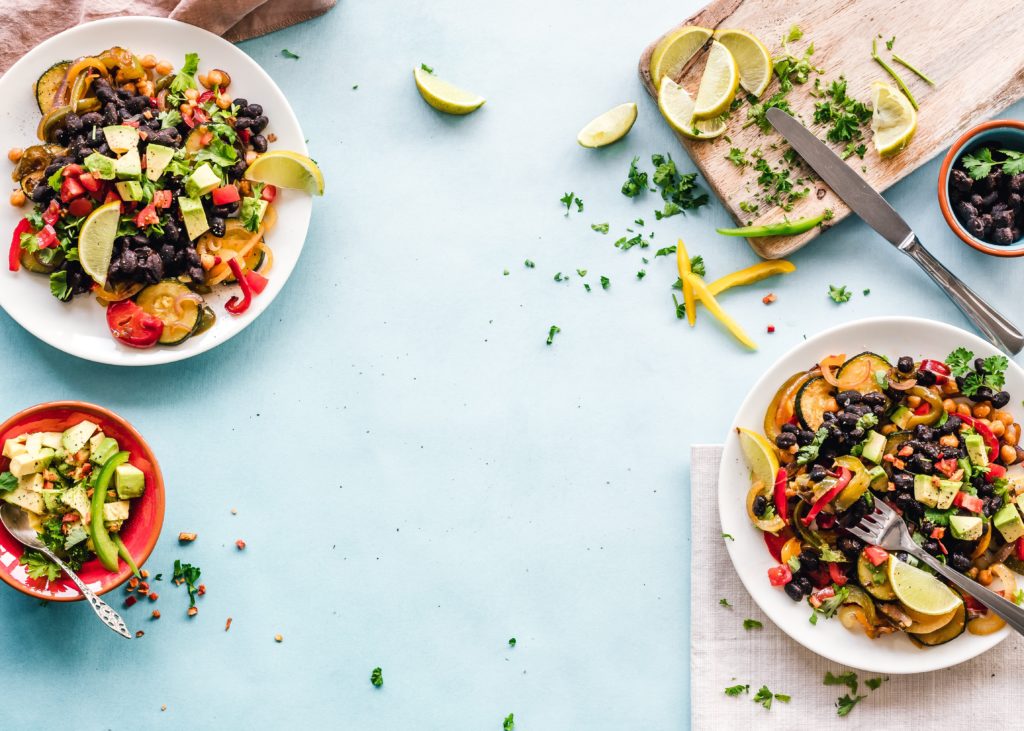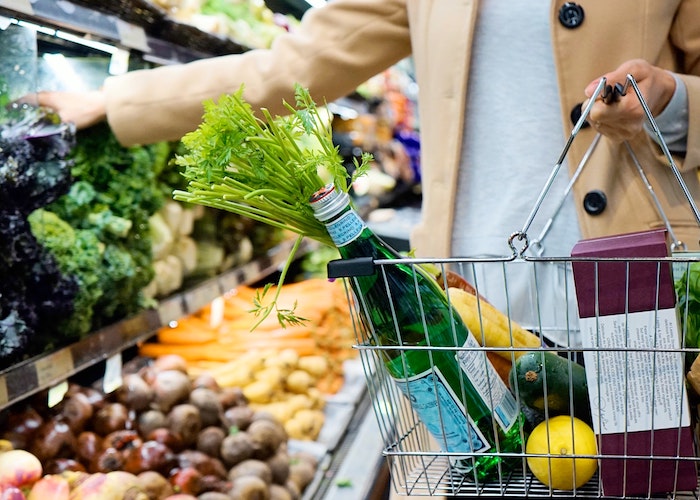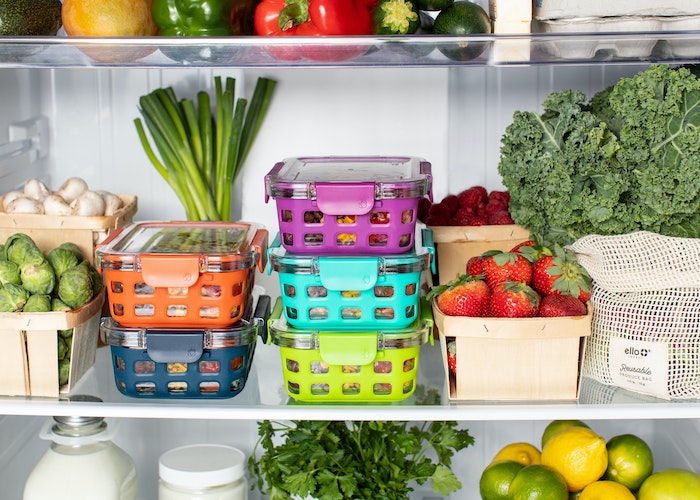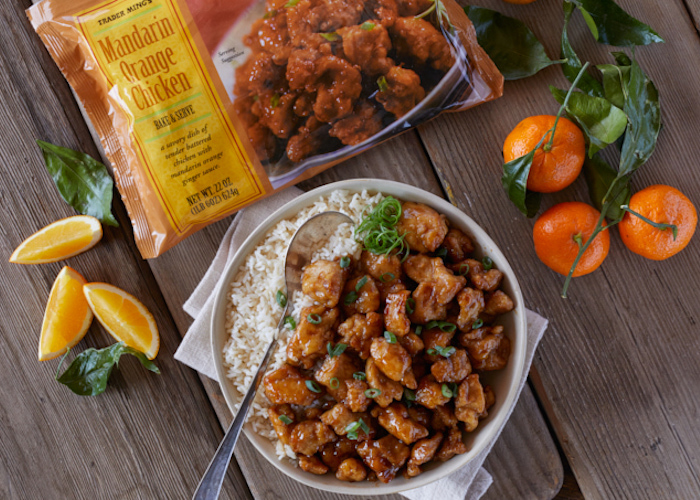How My Life & Wallet Got Healthier When I Stopped Buying Into “Food Myths”

I am the type of person who is able to eat a lot and not feel full — for at least an hour. While this may sound incredible to some, who often are unable to finish their meals, I’ve been prone to overeating and feeling uncomfortably full after a meal. Now that I’m more aware of this habit, though, I make a conscious effort to both cut down on the quantity of food I consume and to increase the amount of time it takes for me to finish my meals.
But this isn’t a story about cutting down food for the purpose of weight loss. My eating patterns had been making me feel lethargic, which is why I had begun to change them. But I wound up still questioning those new habits — mainly as a result of the immense, often conflicting, amount of information available regarding the “best” eating times/snacks/meal sizes/etc. I call these “food myths,” only because everyone I know seems to subscribe to a different set of them, and I genuinely believe that there is no particular formula to how, what, or how much we should all be eating. Many of these food myths aren’t backed by concrete science and, what’s more, we all have different bodies and different genes.
Nevertheless, these food myths have made me doubt myself, and the way I consume food, many times. For instance: am I really consuming enough food, is my stomach really full? Moreover, comments from friends or coworkers have led to me splurging on unnecessary items that I don’t really need. A tall, male coworker (who would need to consume more than me based purely on our size differences, anyway) once commented that it seemed as if my portion sizes for lunch were rather small. I immediately began to cook myself an extra half a cup of quinoa in my meal prep for the next week, to compensate for what he thought my lunch lacked. But instead of feeling more full, healthy, and content, I wound up feeling bloated. I didn’t need as much food as my coworker did (or even suggested I needed), and adding an extra half a cup of quinoa isn’t cheap — at least $2-3 where I live, to be honest.
If you, like me, are never quite sure if your food portions are sufficient, I’d recommend experimenting and taking the time to check in with your body about how you feel. This was honestly difficult for me, since it took me so long to finally feel full after a properly sized meal. But I kept reminding myself that I would feel full, eventually, and didn’t really need more food. And, surely enough, that was true.
I also began tracking the amount of water I drank, and drinking more water during and in between meals so that I felt that feeling of satiation much faster. One of the big reasons that I’ve become more comfortable with smaller portion sizes is because I’ve finally begun to drink eight glasses of water (at least!) a day. I used to drink maybe two glasses of water a day, if I was trying, so water intake can definitely have a big role on your perceived satiation.
Another “food myth” that I’ve heard quite a bit is that it’s better to snack, or eat smaller meals with increased snacks in between, to improve your metabolism. I’m not a nutritionist by any means, but a multitude of articles with advice along these lines has previously led me to purchase a bulk of healthy snacks, such as RX bars, almonds, cashews, and dried fruit. This easily adds up to roughly $20 worth of snacks just for one week. For context, I live in San Francisco, so prices may be higher or lower elsewhere. But my weekly grocery budget is $50, and I never had trouble sticking to that until, of course, I started purchasing these snacks.
Prior to buying these, I managed to space out my meals in such a way that I ate when I was actually hungry, which typically occurred every 3-5 hours. Since buying these snacks, though, I found I was forcing myself to eat a handful of almonds after my workout or munch on a RX bar during my commute home, even if I didn’t want it. Just knowing that I had excess food that I had spent a lot of money on made me feel as if I was hungry, even though I had been going without those snacks for months. (This is another tip I’ve learned about my relationship to food: if I buy any type of food, whether it be quinoa or potato chips, I feel guilted into eating it because I spent hard-earned money on it. So, I try to opt for the healthier options when I’m in the grocery store, since I know Future Me will be grateful.)
I have always kept emergency snacks in my purse, just in case I get hungry for whatever reason, and some days I’m hungrier than others depending on the type of workout I did that day or my stress level. But I’ve learned that while a multitude of snacks a day may work for some people, it didn’t do much for me in terms of my energy, health, or happiness. Instead, I would wind up not finishing my lunch or dinner, and I never knew what to do with those limited leftovers.
Of course, this isn’t the case for everyone. But we all read a plethora of food-related articles and are bombarded with news about the latest diets, whether they be a celery juice cleanse or keto. And these food-related myths have financial costs. Moreover, while they may work for some people, they don’t work for everyone.
I’ve grown to become confident in my own food habits, merely because they work for me and help me to feel strong, healthy, and energized. If your current food habits don’t make you feel that way, I definitely advocate for trying new types of foods, even if they are more expensive (as healthier options can often be). Or, switch up your eating schedule — smaller meals with more snacks, larger meals with fewer snacks, intermittent fasting, etc. For me, these experiences have allowed me to feel empowered in the groceries I do buy, instead of constantly doubting the portions I pick up or the types of foods I purchase, and has helped me to avoid anxiety when it comes to the cost of my grocery bill.
What are “food myths” that have cost you more money than you anticipated? And how did you manage to become confident in the food you ate? (Or is this just a “me” problem and no one else worried about their food as much as I did?)
Keertana Anandraj is a recent college grad living in San Francisco. When she isn’t conducting international macroeconomic research at her day job, you can find her in the spin room or planning her next adventure.
Image via Unsplash
Like this story? Follow The Financial Diet on Facebook, Instagram, and Twitter for daily tips and inspiration, and sign up for our email newsletter here.




